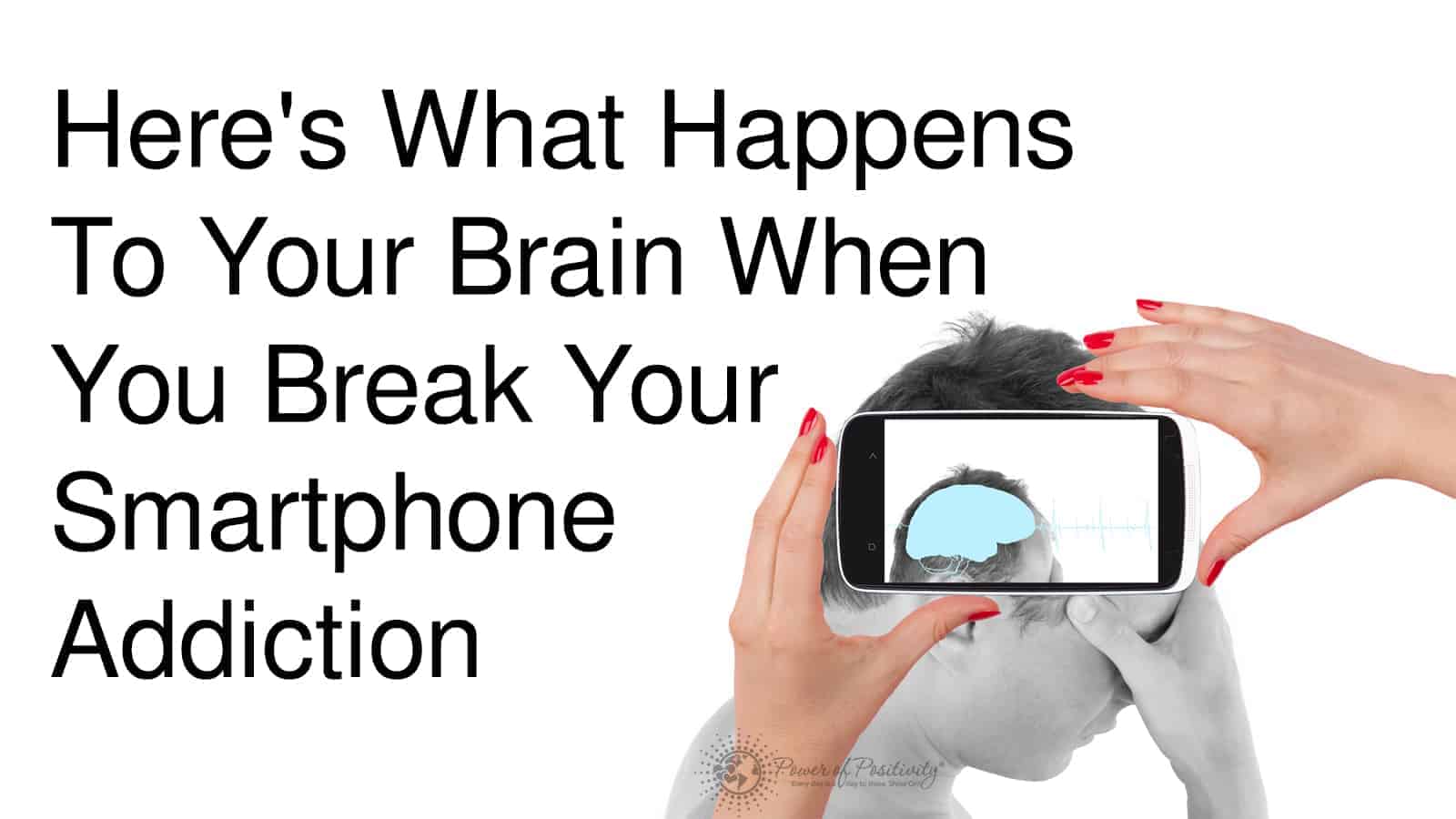If you look around at any given public place today, most people sadly spend more time in their smartphone screens than they do connecting with those around them. Smartphones originally made a wonderful way to check something on the Internet while out and about, or check an email or two. Nowadays with the thousands of apps available and the obsession with social media platforms, people use their smartphones basically to stay entertained. We’ve become addicted to technology, and less connected to ourselves and the world around us.
Ask yourself this question: How many times a day do you check your smartphone? Do you check it for important information and notifications, or check it every chance you get even if you don’t have notifications? Most people use their phones not out of necessity, but out of habit. We’ve become so accustomed to using our phones as a crutch, while we wait for a table at a restaurant, to avoid an awkward conversation, or just to escape reality.
However, all of this cell phone usage can really take a toll on your health, and make you feel like a zombie. Most of us have no idea how to live without our smartphones, but we’d like to share with you what incredible benefits come with giving up your smartphone, or at least using it significantly less.
Here’s what happens to your brain when you break your smartphone addiction:
Related article: These Things Happen To Your Body When You’re On Your Cell Phone Before Bed
For starters, let’s talk about how addicted we’ve become to our precious smartphones.
In a 2015 Pew Research Centre study, 24% of teens said they go on the Internet “almost constantly.” Surveys in the United States and Europe from 2012 prove that between 1.5% to 8.2% of people suffer from what’s known as Internet Addiction Disorder (IAD). Other reports have found even higher rates between 6% and 18.5%. The governments of China and South Korea have classified IAD as a major public health threat. Of course, Millennials use their smartphones more than any other group, which means even more people will suffer in the future if we don’t do something about it now.
In fact, artists and photographers have tried to point out how sick we’ve become as a society, and how smartphone addiction is slowly destroying our connection to ourselves and others. For example, Erik Pickersgill’s photo series Removed features people looking at their phones in various situations, except he edits out the phones in all the pictures. This way, you can see how disengaged and isolated everyone seems.
In addition to the isolation that cell phones cause, using a smartphone too frequently can contribute to major health problems. For example, if you use your cell phone too close to bedtime, your body will trick your mind into thinking that it’s daytime and you should stay awake. Many people who use a smartphone before bed have reported sleeping problems, as the artificial lights from phones inhibit your body’s natural ability to produce melatonin.
Also, studies have found elevated stress levels in people who use smartphones frequently, and other reports indicate that cell phone users can experience back and neck problems associated with bending down constantly to look at their screens.
Related article: This Is What Happens To Your Body When You’re Always On Your Phone
Finally, other studies have linked smartphone usage with decreased long-term memory storage as well as a reliance on looking information up on search engines instead of thinking critically.
So, by giving up your smartphone addiction, your brain can literally transform since you will start relying on it more than your phone for information and new knowledge.
An article written by Jenna Woginrich on The Guardian confirms all of the points we’ve listed above, as she explains her experience of giving up her smartphone:
“I’m a freelance writer and graphic designer with many reasons to have a little computer in my holster, but I don’t miss it. There are a dozen ways to contact me between email and social media. When I check in, it’s on my terms. No one can interrupt my bad singing of Hooked on a Feeling with a text message. It’s as freeing as the first night of a vacation.
“My phone” has become “the phone”. It’s no longer my personal assistant; it has reverted back to being a piece of furniture – like “the fridge” or “the couch”, two other items you also wouldn’t carry around on your butt.
I didn’t get rid of it for some hipster-inspired luddite ideal or because I couldn’t afford it. I cut myself off because my life is better without a cellphone. I’m less distracted and less accessible, two things I didn’t realize were far more important than instantly knowing how many movies Kevin Kline’s been in since 2010 at a moment’s notice. I can’t be bothered unless I choose to be. It makes a woman feel rich.”












 Community
Community

